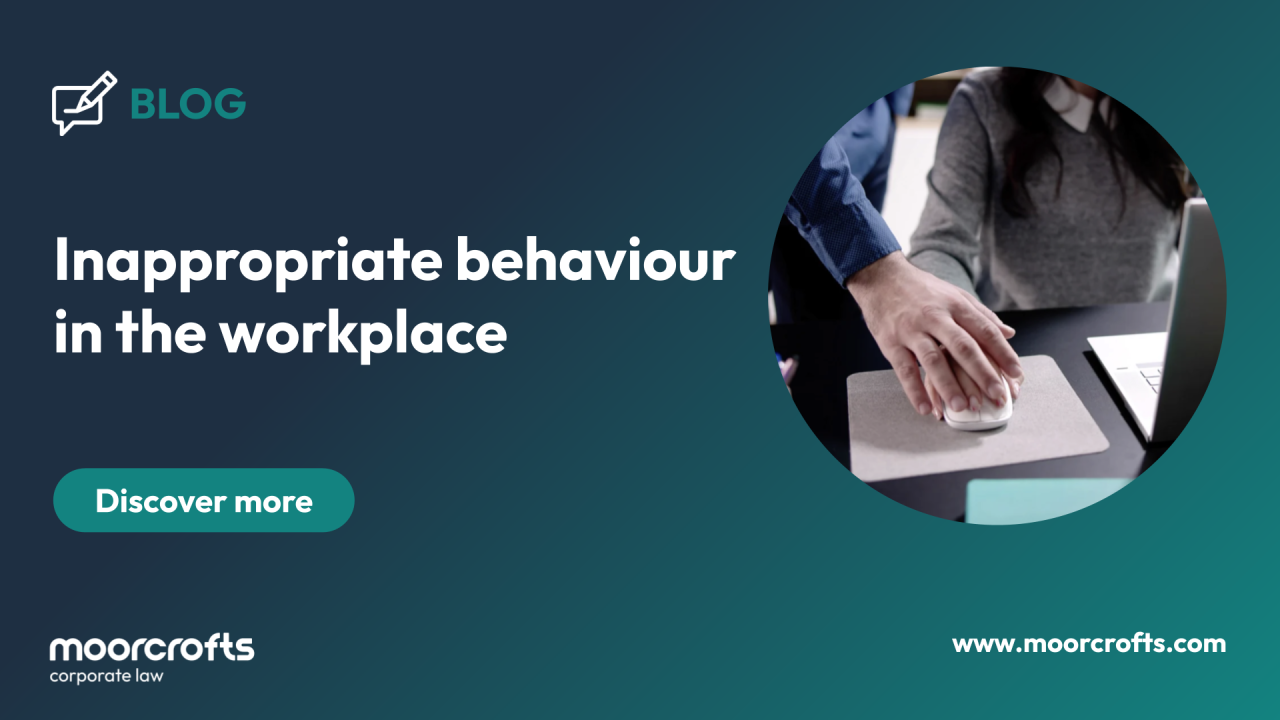Inappropriate behaviour in the workplace
According to recent reports in the press, Primark boss, Paul Marchant, has resigned following allegations made by a woman in relation to his behaviour towards her in a social environment. It is not clear from reports, whether or not she was an employee.
Following an investigation, carried out by an external team of lawyers, Mr Marchant is said to have acknowledged his “error of judgment” and to have apologised to the individual concerned.
Whilst reports to do not give any specifics relating to this allegation, the press say that this is not the first complaint received in relation to Mr Marchant. There was a complaint made about his ‘inappropriate communication’, that was dealt with a few years ago.
The response from Associated British Foods (owner of Primark) is a welcome example of how important it is to deal with such allegations and complaints seriously and to conduct thorough and fair investigations, no matter who has been accused of the inappropriate conduct. ABF is reported to have commented that it “seeks to provide a safe, respectful, and inclusive work environment where all employees and third parties are treated with dignity and respect.”
From an employment law perspective, employees have the right to work and carry out their duties, without being subjected to unwanted behaviour that violates their dignity or causes an intimidating, hostile, degrading, humiliating or offensive environment.
Although there is no suggestion that this case involves sexual harassment, given that cases such as this can give rise to discussions about the abuse of power by senior staff to engage in inappropriate conduct, employers need to be aware of their obligations. Sexual harassment in the workplace has long been a serious concern under UK employment law. However, many employers remain unaware that their legal responsibilities extend beyond the office walls. Workplace social events, after-work drinks, and even interactions outside formal working hours can still expose employers to liability for sexual harassment. Employers must recognise that just because an incident occurs outside standard working hours does not mean they are exempt from liability. A company-organised Christmas party, for example, is considered an extension of the workplace. Even informal gatherings, such as after-work drinks where managers and colleagues interact, can fall within this remit.
The Worker Protection (Amendment of Equality Act 2010) Act 2023 significantly strengthens protections against workplace sexual harassment. As of 26 October 2024, employers have a new proactive duty to take reasonable steps to prevent sexual harassment from occurring. This means that simply responding to complaints after the fact is no longer sufficient—employers must actively create a culture that discourages harassment and take pre-emptive measures to protect employees.
A key change under the Act is that third-party harassment provisions have been reinstated, meaning employers can now be liable if employees experience harassment from customers, clients, suppliers, or other external parties if reasonable steps were not taken to prevent it. This could include instances of harassment at work-related social events, conferences, or client meetings.
To mitigate risk and comply with the new legal requirements, employers should consider implementing the following measures:
- Comprehensive policies: Ensure workplace policies explicitly cover social events and external interactions, making it clear that harassment will not be tolerated in any setting.
- Training for all staff: Regular training should be provided to help employees and leadership understand what constitutes harassment, their responsibilities, and the consequences of misconduct.
- Reporting mechanisms: Employees should have multiple, accessible ways to report harassment, with assurances that complaints will be handled confidentially and effectively.
- Risk assessments: Employers should conduct risk assessments before workplace events, consider appointing responsible persons to oversee conduct, and set clear expectations for behaviour.
- Addressing third-party harassment: Where employees regularly interact with customers or external parties, businesses should establish clear procedures for handling and preventing harassment from non-employees.
If your organisation needs guidance on compliance, training, or handling sexual harassment claims, please contact our Employment Team.



